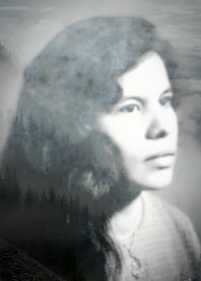Mirror Talk
Through my life experiences, I gained a greater empathy for those who were going through personal loss. I am honing my ability to feel compassion, give encouragement to others, and not carry the stresses so personally. This frees me to see how beautiful life really is. People make mistakes, and forgiveness and letting go are powerful responses to the disappointment.
I learned to get up every day, no matter what I was struggling with.
I learned to face the mirror and subconsciously talk to myself in a positive way.
I remember the day I was told my mother had stage-four breast cancer. I was not mentally present. For days, people were talking but I wasn’t even grasping the reality. My sister would say, “Don’t you understand you need to be home more? We are going to lose her.” I remember standing in the doorway, so drained that I was in a daze. My mother would be in her bed, my sister by her side. I could hear my sister say, “Mom, did you understand what the nurse told you is going to happen and the next steps?” My mother replied, “Yes, I understand, I’m dying.”
 My mom was the kindest woman I’ve ever known. She was the family’s number one supporter. She taught me how, even when I didn’t know something and I was being laughed at or treated badly, to have grace and stay humble in everything—to approach people so I could learn from them, because that would set me apart. She showed me what it meant to have empathy for others.
My mom was the kindest woman I’ve ever known. She was the family’s number one supporter. She taught me how, even when I didn’t know something and I was being laughed at or treated badly, to have grace and stay humble in everything—to approach people so I could learn from them, because that would set me apart. She showed me what it meant to have empathy for others.
The next few weeks passed in slow motion; it seemed as if the cards were stacked against me. I was drinking heavily to mask the thoughts of a future without my mother. I spent too much time with friends who did drugs. I felt like a bystander, numbed by what was happening and like I had nothing to lose. At the same time, I was finishing my senior year of high school and graduation was approaching. I worked two jobs, and I was doing whatever it took to stay focused on making money for a better life, as if money would somehow change my future.
After I graduated, I was still working full time at a wonderful place, but things didn’t get better; they just seemed to go downhill with my mom’s health. I lost a number of friends. I rarely looked in a mirror. I didn’t know myself. A few weeks later, after giving up on chemo, my mother’s cancer had spread. She had made the decision that she would live the rest of her days naturally and fight the cancer with vitamins and a strict diet. I didn’t know at the time she couldn’t fight anymore and was choosing to die. I noticed that my mother began to move less and less; eventually, she stopped talking and spent all her time sleeping.
One evening, she reminded me, “Don’t miss your appointment with the Marine recruiter—he keeps passing and calling.” With a typical teenage attitude of disdain, I said, “Yes, Mom! I’ll talk to him. Just leave me alone about it.” But shortly after that, I tried to assure her: “Don’t worry, Mom, I’ll have a job and a uniform. I’ll buy you that dream house. I will be successful in uniform, you will see!”
It was the morning of September 3. My sister and I were lying in bed, and we heard the oxygen-tank machine stop making that whoosh sound. Then, the beeping started. My sister and I just knew, but we couldn’t even cry. The tears didn’t begin until my dad confirmed that she was gone. There was disbelief even in that moment. She had died shortly after my dad went to work. He had prayed for her that morning, and she told him that she had seen heaven and wasn’t afraid to die.
That was the day I had the meeting with the recruiter, so that afternoon I went to the hotel where I would be sworn in the next morning. I slept for two weeks and woke up to ship to boot camp, arriving on my nineteenth birthday only two weeks after losing my mother. I don’t remember some of the moments because I was mentally and emotionally numb. I do remember speaking to my sisters about missing her. My dad would write letters about how proud Mom would have been and how proud he was.
I was leaving my first duty station, young and ready for my second adventure in the Marine Corps. At this time, I was almost 22 years old. That was when I got the call while on the road that my father had a heart attack. I was told that I only had a little time to arrive if I wanted to say my goodbyes. I drove in panic from Southern California to Dallas, Texas, trying to arrive safely but on time. I was too late.
I was a complete mess. But despite my emotional state, I decided to attend the funeral, and immediately after, drive to my next duty station. I arrived in Tennessee and started working the following week. I worked long hours to drown the loneness and despair I was feeling. All I had was a new job to focus on. I worked until my supervisor kicked me out, and then I would return after he departed. I stayed long enough to just go home and sleep. I felt committed to working hard because I felt the pressure of my parents, as they needed me to show up and do well.
Fast-forward through some amazing moments and the normal ups and downs that come from working long hours, marrying a police officer, and having a successful career as a Marine. I experienced the best moments everyone goes through: the first purchase of a home, the carrying through the door, the regency. Going into labor with my son was a magical, beautiful, and scary experience. I remember every moment vividly. I had to wait 24 hours to see and feel my son.
I remember loving being a mother and wife at this time. I was so happy but surprised to have found myself in the fog of post-partum depression. The black cloud was only on the inside, my mind. I felt happy most time, but I battled separation anxiety. I had horrible thoughts about the dangers that my son might face, and also about the value of my own life. The only thing that pushed me through was remembering the love my mother had shown me. I considered how my son’s safety and happiness could be altered if I was not strong on the inside and on the outside.
I had some happy moments, but I was still pushing for more at work. I was still striving to be a better Marine, mother, wife, and every other role I played. But in the midst of it all, I had stopped fighting for myself. So I volunteered to deploy and serve overseas, thinking this was the void I was missing. Our military culture has a strong sense of pride, especially if you served in combat. I had been missing this sense of belonging with my service brothers and sisters, as I had not served in a combat zone up to this point in service.
I deployed to Afghanistan, leaving my husband and my 18-month-old at home. It turned out to be the best decision for me, even though it was not the best for our relationship. I realized I was missing something in the relationship and didn’t know how to express it.
The journey also helped me recognize how precious life really is, and how quickly it can be taken away. I spent a lot of time facing a mirror at the gym at different hours of the day or night alone. Facing the mirror was uncomfortable, because my mind would be going through my thoughts and feelings. But I realized this was the place where I could finally become comfortable with myself.
I didn’t know what fighting for myself looked like, because at this point, no one had really fought for me. My mother quitting chemo had felt like she was quitting on me. I had some resentment against my husband for not encouraging me to separate from the military; it felt as if he wasn’t fighting for us. Although he’d encouraged my military service, I realized I wasn’t sure if I wanted to continue to serve or I wanted to be home with my family.
I only felt God, showing me his love and unconditional grace. God was the reason I was still here—and the source of strength that I needed to start fighting for my own life and setting a positive example for my son. I accepted that my anxiety and depression symptoms needed to be addressed, but that had to start with me.
My healing started with facing the mirror and looking at myself. In this period, I was picking apart every flaw in my past and going through it in my mind, while attempting to learn how to really love myself for what and who I was. I tried even loving my thoughts. If I didn’t like them, I would reset and redirect my view to a positive one.
When I returned home, I didn’t feel love, even though it surrounded me. I wanted to be in love with myself, with life, or with my husband. I decided to move out, and there was no big fight in response. My husband said he was okay if this was what I wanted.
Within a few months, we finalized the divorce. That black cloud resurfaced once more. So did the thoughts questioning the value of my life. I wished for physical pain, which would’ve been easier than the emotional pain I was feeling. I went through a few days, and then I realized I had to face what I was going through with love and forgiveness. I started to write affirmations and quotes, Bible verses, and encouraging phrases on my mirror so that I could face what I was living through.
At this time, I also rushed into a relationship that turned toxic. I knew my heart has been through too much and that another breakup would be devastating. Heartbroken, I decided to walk away. I learned so much about myself, ironically, despite the negative moments we’d had. He taught me that I could merely live or thrive in life. I chose to thrive.
Finally, I could be myself. And I could actually love myself. Now, when I’m battling something, I know that I can face myself in the mirror and all I need is the right mindset to take that one step forward: It’s a mindset of waking up grateful, knowing I will invest in and forgive myself, and then accept life for what it brings. It’s wonderful to feel this way again.
Aside from losing my mother to breast cancer and my father to a heart attack, I also lost my brother-in-law to a drunk driver. I’ve experienced sexual assault and recovered from alcohol abuse, all before I was 21 years old. And despite the fact that I had to survive post-partum depression and separation anxiety, as well as a divorce from a good man, just to discover who I am, I am proud I survived. This is not to take away from all the other struggles of my life, or the adversities that every human being must endure and the more difficult journeys others may take. This is just me sharing that reflection, grace, and compassion can turn moments of darkness into light and shape you like they did me.












6 comments to "Mirror Talk"